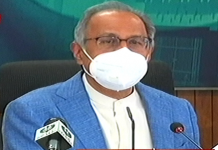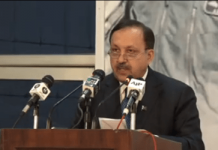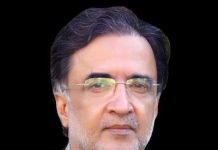Published on: September 11, 2025 12:42 AM
 Sindh Minister for Education and Mineral Development, Syed Sardar Ali Shah, has said that due to the country’s rapidly growing population, resolving issues within the available resources is becoming an increasing challenge. He highlighted that every year 1.2 million children are born in Sindh, while the public education system can only provide schooling to around 250,000 to 300,000 children annually. He added that through partnerships with the private sector, many challenges can be addressed effectively, noting that the Sindh government has already achieved success in several sectors through such models. He expressed these views at the Education Management Organization (EMO) Conference organized by the School Education Department’s Public Private Partnership (PPP) Node. The theme of the conference was “Partnering for Impact in Education.”
Sindh Minister for Education and Mineral Development, Syed Sardar Ali Shah, has said that due to the country’s rapidly growing population, resolving issues within the available resources is becoming an increasing challenge. He highlighted that every year 1.2 million children are born in Sindh, while the public education system can only provide schooling to around 250,000 to 300,000 children annually. He added that through partnerships with the private sector, many challenges can be addressed effectively, noting that the Sindh government has already achieved success in several sectors through such models. He expressed these views at the Education Management Organization (EMO) Conference organized by the School Education Department’s Public Private Partnership (PPP) Node. The theme of the conference was “Partnering for Impact in Education.”
The event was attended by Secretary School Education Zahid Ali Abbasi, Senior Director PPP Node Ashiq Khuhro, Chief Program Manager Dr. Junaid Samo, CEO of Pythaverse from Indonesia Lim Soon Seong, Chairman Muslim Hands Dr. Pir Syed Lakht-e-Hasnain, Global Director Education Dr. Muhammad Azeem, Director General NAVTTC Dr. Fida Bazai, Suleman Shaikh of SZABIST, Academic Head Classera Middle East Neelam Amir, and Shafiq-ur-Rehman Paracha from Sindh Madressah Board. Representatives of JICA, UNICEF, World Bank, Asian Development Bank, USAID, IBA Sukkur, Beaconhouse, Aga Khan Educational Board, Ziauddin Board, SRSO, The Citizens Foundation, and other partner organizations also participated. The objective of the conference was to benefit from the joint experiences of public and private institutions in managing public schools, and to deliberate on recommendations for improving the quality of education, ensuring effective use of resources, increasing student attendance, and enhancing teaching standards through strengthened public-private collaboration.
On the occasion, Minister Syed Sardar Ali Shah said that Sindh government’s EMO Conference has opened new pathways for improving the quality of education. “For the hope of better education, we are openly inviting partnerships. We do not want to solve challenges in isolation but by uniting together,” he reiterated. He further added that the EMO Conference organized by the PPP Node of the School Education Department not only provided an opportunity for the exchange of experiences but also paved the way for a renewed collective commitment towards sustainable educational reforms.
During the conference, participants openly shared views on the background and outcomes of the EMO model in Sindh, the future role of private sector involvement, expert recommendations, and the potential impact on students.








.jpg)

